Survey: How has the COVID-19 crisis affected the Romanian film industry? Part II
In the two weeks since the publication of the first part of the Films in Frame survey on the effects of the COVID-19 crisis, a possible date for lifting of restrictions has finally been put forward: 15th of May. However, there still seems to be no timeline for when (and how, in the case of a gradual process) the cinematic and, ad extenso, the entire Romanian cultural sector will be able to resume its activity, as well as that of the international festival circuit, which helped enormously in the development of the Romanian film industry. But not all news is bad or uncertain – in these two weeks there have been countless calls for quarantine themed-films (the most notable being the projects of Andrei Dăscălescu and Radu Jude), the SUPER Film Festival for Teenagers launched an intensive training workshop for its young progammers (six high school students from around the country), and local film critics seem to have undertaken an indie initiative to translate some fundamental texts from the history of film theory into Romanian.
Our investigation continues, and this time we find out what happened to the communication specialists, to a growing niche festival (Bucharest Fashion Film Festival) and to a director who is preparing her debut film, among other stories. Our questions were:
- What projects were you working on when the authorities started taking measures against the spread of COVID-19, and how did these measures affect your activity?
- What were the short-term measures that you could take to protect your own projects, given that this was a possibility?
- How do you think that the cultural sector will look like after restrictions are lifted / the pandemic is over, but also your own activity?
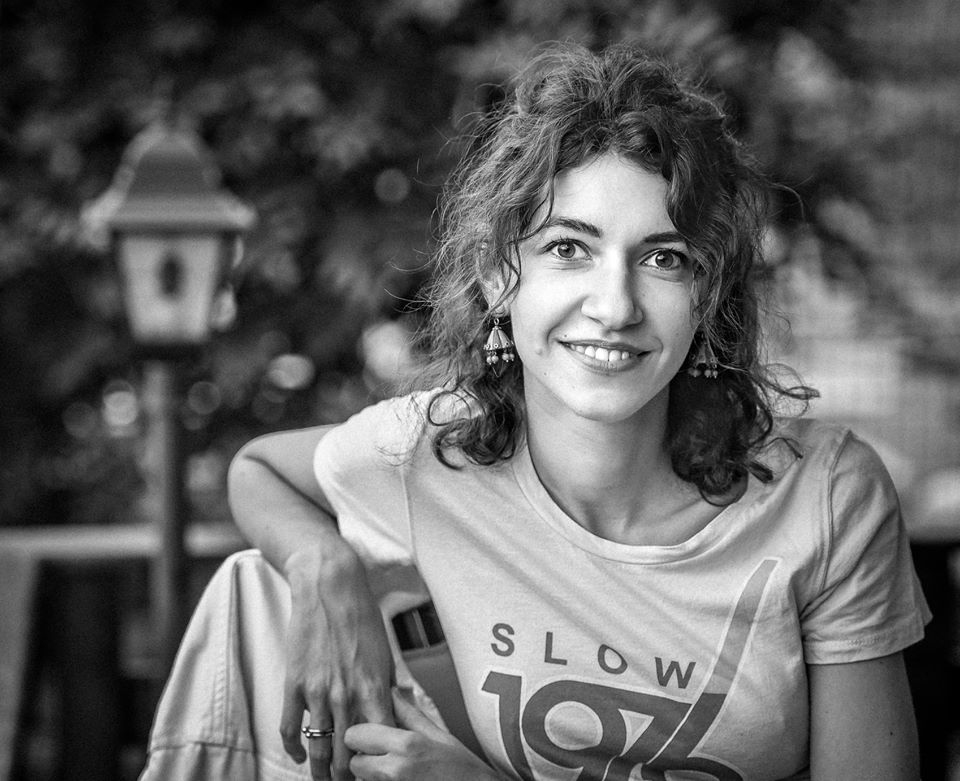
Ana Maria Comănescu, director
The shootings on which I was working on as an assistant director were quickly postponed, and the feature film project that I’m working on was stuck in a suspended status quo, but, for the moment, the timeline of the pre-production isn’t seriously affected.
Seeing that the current situation doesn’t allow for me to look for locations or actors, what remains for me to work on is the script, which is something I would have done anyway (but many more interruptions, probably), meaning re-reads, introspection, various inner quests and, finally, rewriting. I’m trying to make good use of this time and to bury myself in things that are inspiring. I never disliked solitude. On the contrary.
I have to admit that what makes me curious about the future is the general social landscape, the ways in which the collective mind will unwind after this period of time. I guess that there will be a strong wish to go out, to have an active social life and, implicitly, to consume cultural products. I’d say that this might be the same as before, no more, no less. As for the institutions governing cinematography, things have already been unpredictable for a long time before the pandemic. As the word goes, “we shall live and see”.
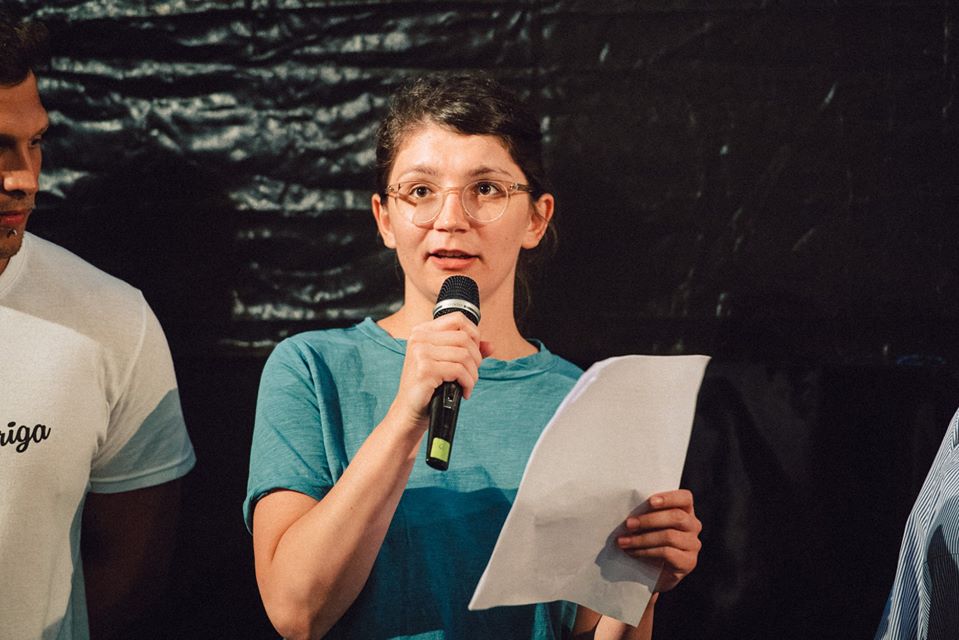
Carla Fotea, producer
We had quite a lot of projects in the works. Ada Solomon talked about them, so I’m not going to repeat them. Radu Jude’s Sleepwalkers is the most affected project because we were going to start shooting soon. Another project that was hit pretty hard, specifically because it had to be stopped right when it was about to start, is the local release of Ivana the Terrible. Other than that, for most of the projects that are currently in post-production, we continue on working on them, and we are fortunate to work with some great teams that have immediately found solutions. As to projects which are currently in development, such as Ana-Maria Comănescu’s Horia, we’re doing everything that can be done one year before the shooting is planned to start – we’re applying for financing in various countries, we’re consulting our international partners, working on the script, but we’re postponing the location scouting and the casting process for the time being. So, there’s no break from work whatsoever, it’s just that now there are even more unknown variables than we were already used to.
But, somehow, and perhaps it’s due to the recklessness of age or lack of experience, I don’t think we’re going to leave this crisis in that bad of a shape. And I’m not talking about myself or the projects that I’m working on, but about all of us who are in the business of making movies. It’s an opportunity to learn how to do things in a more balanced way, and it’s also an opportunity for the guardian institutions, which are governing our activities, to learn something, to adapt, and become proactive in supporting this field of work. I think that we and these institutions also have the capacity to adapt and look together for solutions that can go beyond the crisis – after all, that’s our trade, finding solutions.
I don’t know how much these projects can be protected, after all, we’ve only postponed the things that can’t be done on a laptop, and we’re living in the hope that something good will still be able to come out of this.
I’m somehow optimistic. I don’t think it will be the same and, to a certain extent, I’m happy about that. I don’t think it’s going to be easy to bring people to cinemas, at least not for Romanian films – which means that we should maybe rethink this experience and make it more intimate and personal, like going to small communities rather than multiplexes. I don’t think it’s going to be easy to convince people to go to festivals – maybe we’ll have to make them smaller and to create communities and monthly events around them. And, of course, I don’t think it’s going to be easy to make movies. There’s going to be less money, both in Romania and in other countries as well, but, maybe, that is going to lead to a New-New Wave and in the next few years we’re going to have some extraordinary films coming out. Yes, films made on small budgets, or smaller anyway than we’re already used to, but they might be extraordinary.
Another possibility, that seems to be the most plausible one, is that if this lockdown lasts for only another month or so, we’ll be right back on track and all things will be the same as before, and we’ll just have a very crowded period in terms of shootings and cultural events.
However, what I wish is for us to find solutions that will help us all to get out of this whole thing healthy and clear-headed because I don’t think that it’s possible one to stay locked inside the house for a few months and then just simply resume its life and work as if nothing had happened. I hope that we have enough respite to properly pay attention to physical and mental health, not just ours, but also of those around us.
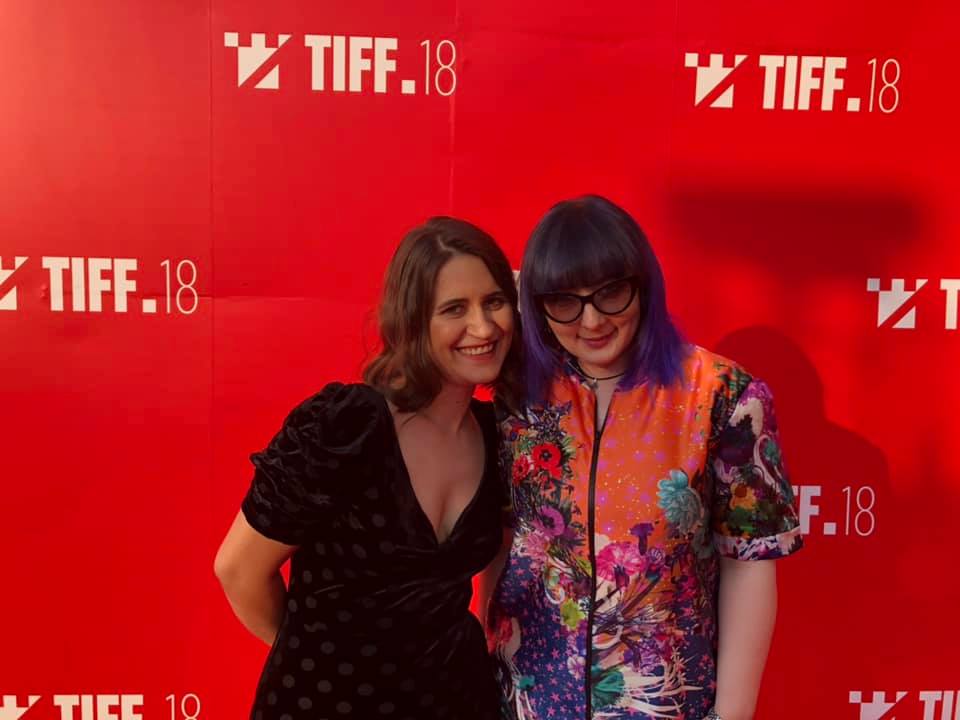
Simona Rădoi (PR Specialist) and Anca Macoviciuc (Digital Strategist)
We work together on the communication strategy for the Gopo Awards Gala, which was due to take place on the 24th of March and had to be postponed, as well as other projects from the cultural sphere, such as films, film festivals, theater festivals – which were due to premiere or to happen over the summer-fall season. For some of them, we’ve already been working for entire months, as Radu Corniciuc’s documentary film Home, which will be released in local cinemas during autumn.
One of our pet projects is also FILM+, the workshop, and support mechanism for young cineastes, which was due to have a new edition during TIFF. And, aside from our common projects, Anca collaborates with the Marketing Institute and Bookfest, and Simona works on the films which are distributed by Independența Film.
For the moment, a part of the events that we were working on together or individually have been postponed, and even though we don’t know their new dates, we are still working on them, by proposing communication strategies that are adapted to the current situation and we’re looking for solutions, together with the organizers, to have these events unfold under optimal safety conditions. It’s a difficult situation for both organizers and us, as well as communication service suppliers.
Beyond all of this, however, the general impact that this situation has on Romanian cinematography and on its independent cultural sector is very worrying for us, seeing as these two fields are interconnected. This is why we think that what is needed now, more than ever, is to talk about responsibility and solidarity. To practice communication in such a crisis means adapting your messages to supporting the initiatives in the field, but also to remind people of the efforts and successes of the cineastes. Their products are being consumed online in the time of #StayHome, but those consuming them are unaware of the fact that this field is one of the most affected ones by the crisis, and it doesn’t have any kind of support from the local authorities (as seen in the open letter addressed to CNC by local cineastes), and that it desperately needs to be helped by the government and the public in the future.
In our work, we relied on honest and real-time communication, both with our audience and our partners and sponsors, we tried to adapt our communication planning to the current situation and we are constantly keeping in touch with our collaborators and organizers.
We believe that this crisis will have significant implications on the cultural sector, which will be able to recover not just with the help of wise legal measures, but also with the help of the private sector and the public. We’re expecting a tough period, both for organizers, creators, performers, as well as for communicators. This is a sector that has always been seen and treated as a Cinderella anyway, which has been constantly fighting for financing, visibility and respect. Now it’s simply just a battle for survival. The general landscape is going to suffer various transformations, that’s for sure, which depends on resources, technology and changes in consumption habits, and the challenges posed by this will be up to par.
For us, as well as for the creators and distributors, the mission to bring people to the cinema or theater or to certain events outside the online space will be all the more difficult, regardless of social distancing rules.
Our hope lies in the fact that, after spending such a long time indoors, when one must admit that the topic of solidarity was intensely discussed, and regardless of the fact that we spent our time reading or listening to music or watching films or shows online, we will be able to grasp the importance that culture plays in everyone’s lives and we will grant more respect and support to the work that goes into creating these projects.
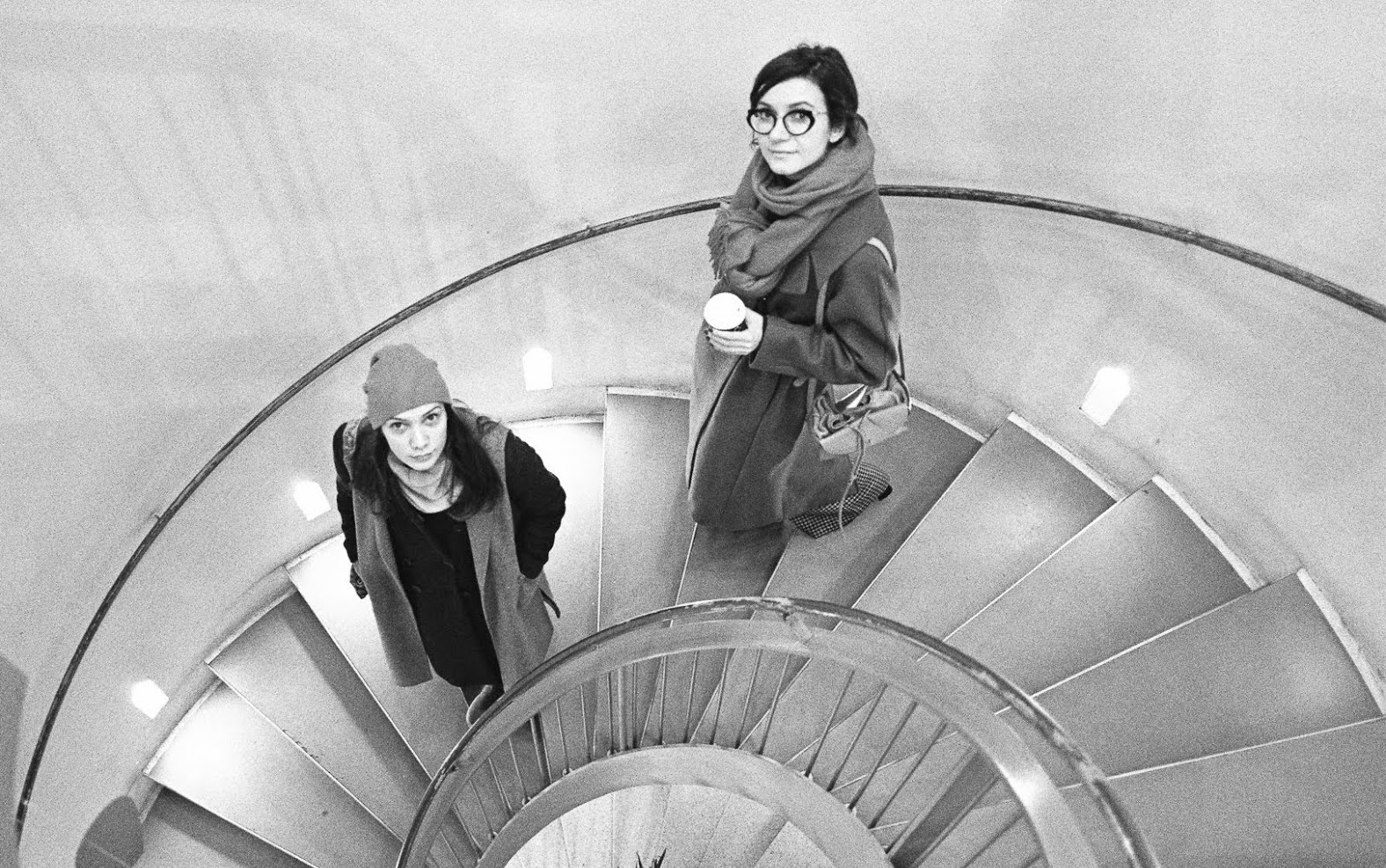
Ioana Diaconu and Mădălina Cozmeanu, co-founders of the Bucharest Fashion Film Festival
At the beginning of March, we were launching our official communication for the 4th edition of the Bucharest Fashion Film Festival (due to run between the 23rd and 26th of April), our teams and partners were fully on board and working in full swing, our roster of films was almost fully confirmed and we were working on sharpening out the final details. The discussions with our sponsors and partners were quite advanced, a part of them had iterated their support and we were planning on the significant growth of the festival. We were trying to catch the eye of new audience sectors with industry-related events – such as the Young Talent Showcase and with new sections – like Dressing The Cinema, a section of cult and classic films reunited under a thematic umbrella that sought out the various explorations of costumes in film history, and Dressing the Body, a selection of shorts films that uses an anthropological approach towards examining the relationship between clothing and identity, and a VR corner dedicated to sustainability.
Initially, we had planned on a crisis communication plan, but soon enough, the budgets of our sponsors were frozen, and the official restrictions came into full force a few days after we officially announced the event, so, in little over a week, we realized that we had to postpone the festival.
The first thing we did when we realized that we will have to postpone the festival was to contact our locations and see to which extent we would be able to reprogram it during the fall, and to reserve one of the only two weekends that were available, and from then on to begin a complex patchwork of realigning all of our variables. In this case, the fact that the festival is a smaller-sized event and niche-oriented, so implicitly a more flexible one, was an advantage for us. Also, we contacted all of our confirmed distributors, to discuss our status and to update us on their distribution strategy for the films, our partners, guests, and competition filmmakers.
We are lucky that the lion’s share of our expenditure can be transferred, in the case of a reprogrammed event that would take place towards the end of the year. The situation is rather delicate in regard to this year’s films because we don’t have any guarantees that they might be launched on VOD until we will be able to hold the festival, so we are keeping in touch with their distributors. In the following months, we will try to get a grasp of the market’s situation and how we might financially recalibrate, and we’re considering the idea of organizing the festival on a smaller budget. For the time being, we are investigating ways through which we could adapt starting from this very edition, maybe by migrating a fragment of the festival’s content online (such as debates or short films), or by collaborating with other festivals.
It might be that, due to the shocking nature of the situation, latter-day scenarios might seem a bit foggy nowadays, and they’re partially compromised by the general emotional state. The answer largely depends on the moment in which we will be able to discuss going “back to normal” – if that will be possible in six months or a year. In the first scenario, we’re expecting a domino effect that will take the shape of an overaccumulation of events in the last part of the year, which could generate mutual cannibalization, which would obviously have a negative impact on the independent sector, first and foremost. A question that’s probably on everyone’s mind right now is related to the financing contracts and the changes they might have to undergo – if they will still exist, that is.
In the longer-term, a worrisome aspect is a potential content crisis for our 2021 edition. I’ve noticed that the international community is doting on a programming strategy that relies on curating somewhat older content, and on offering the audience a viewing structure and other events that are centered around such themes. In the case of BFFF, that might be transposed by extending the Dressing the Cinema and Dressing the Body sections and their connected events. The competition, however, cannot be considered in the absence of newness.
We will most probably need new and more complex mechanisms and significant financial support. The funding schemes which have been announced for online-based events are useful as a short-term compromise solution, but they only partially solve the problems at handed, since some of the arts depend on the presence of the audience as a prerequisite. What might be interesting to discuss, in regards to these new mechanisms, is the measure in which they can be set into motion by the people in the industry and the ways they can function with the support of the audience. In this period of time, the film industry is being traversed by a wave of solidarity, that is expressed through generous actions like time-banking, with mentorship sessions offered online by directors, producers, casting directors and others, or other collaborative efforts, which enable everyone to survive this period. I’d recently read about a temporary, rental-based VOD platform launched by Kino Lorber, the indie film distributor, whose business model works towards helping independent cinemas, by sharing the profits for the films that they had reserved. Of course, the community of these cinemas had an essential role to play, here, but it’s interesting to think about what shape similar ideas would take on in our local context. For the moment, the only certainty is that we will be forced to pivot and to learn the language of this new alternative universe.
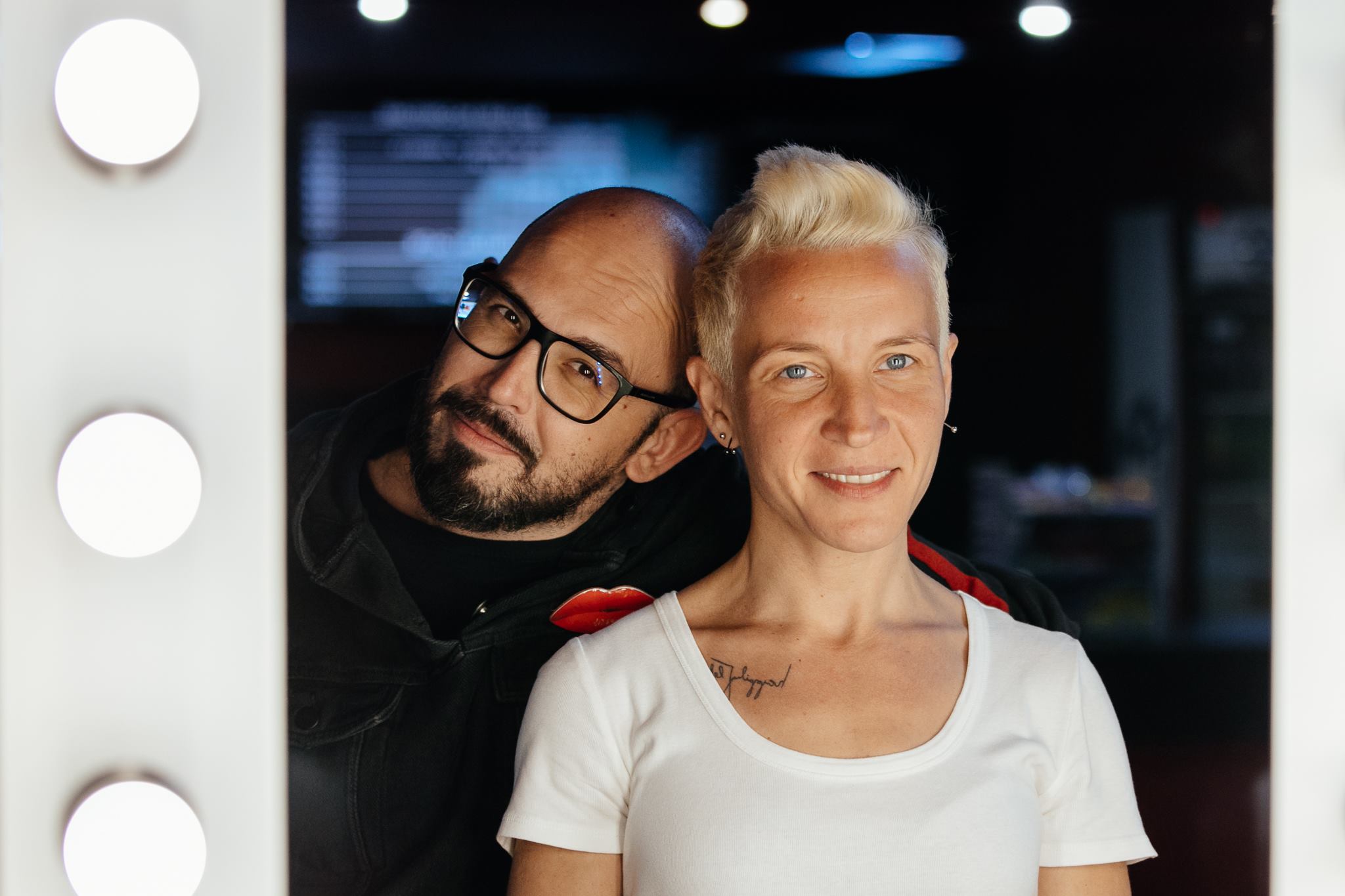
Ilinca Belciu (distribution coordinator, producer) and Cătălin Anchidin (PR Manager)
… and just when we thought that we had already experienced just about everything in terms of extreme situations when it comes to organizing cinema-related events, the pandemic showed us that real-life certainly beats the movies. And what a bad movie this is…
The whole thing caught us right on the eve of Ivana the Terrible’s (dir. Ivana Mladenovic) release in local cinemas, with several screenings of Uppercase Print (dir. Radu Jude) which had been programmed a long time ago, and during the promotional campaign that preceded 5 Minutes Too Late (dir. Dan Chisu).
It’s pretty clear to us that we will have to postpone our two other premieres for June (Everything won’t be fine, a documentary by Adrian Pîrvu and Helena Maksyom, and Chiara Malta’s debut feature, Simple Women).
Beyond anything, in this very complicated time, when it’s essential to take care of each other and of us, of our physical and psychological health, of our parents and grandparents, it’s hard for us to imagine how the world will look like after the pandemic is over. How and when will we come back to normal? And what will normality look like?
I am convinced that we will all have to be more creative and fuller of life than ever. But that has never scared us.
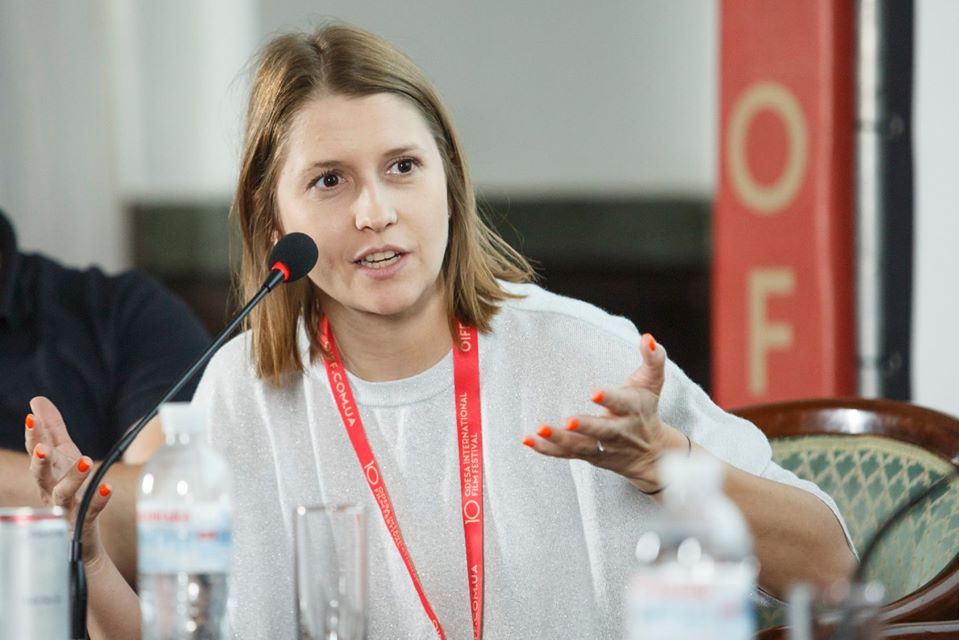
Anamaria Antoci, producer
When restrictions started to come into effect we had already started our promotional and distribution campaign for the release of 5 minutes, Dan Chișu’s newest feature. The film was due to premiere on the 27th of march, so most of the events had already been programmed and were in the course of being organized. Seeing as we had already spent the lion’s share of our campaign’s budget, I was rather precautious and didn’t hurry to cancel the events, and waited for the government to announce its prevention measures.
Just a little bit before the state of emergency was decreed, specifically on the 3rd of march, we finished prospecting locations for an international project, which was due to enter its production phase on the 1st of July. Being a first service project for my company, it was very important for my team and I to respect our production calendar, especially from a financial point of view. For the time being, the project is on hold and we don’t know when, if and where it will resume.
What is probably the most affected project of all the ones that I am working on is Nice people, by Paul Negoescu. The casting and prospection processes were halted, and the shooting was due to start at the end of September. Depending on when activities will be able to resume and what restrictions will still be in place, we will be able to approximate if the remaining time will allow us to resume our production calendar without making any big compromises. In regards to the projects we’re managing that are in different stages of development or in post-production, we’re still working on them, maybe just on a somewhat slower rhythm.
I wasn’t able to take too many measures to protect the projects. We continued working on a distance on what could be solved – financing applications, reports, creative discussions and so on. Other than that, I created some scenarios for every project, and now I’m waiting to see what is happening, so that I can know which of these plots I can apply.
I think it will be quite chaotic after the restrictions are lifted. The lack of organization that is endemic to the creative sector, and here I’m not just talking about the institutions, but also about us, the active professionals, could lead to a jamming and superposition of events, and to an exaggerated prioritization of individual needs to the detriment of collective interests. Also, the current, pre-pandemic financing model will be heavily affected once this is over, and without a strategic intervention by the authorities, we will be unable to regain financial stability.
Film critic & journalist. Collaborates with local and international outlets, programs a short film festival - BIEFF, does occasional moderating gigs and is working on a PhD thesis about home movies. At Films in Frame, she writes the monthly editorial - The State of Cinema and is the magazine's main festival reporter.
